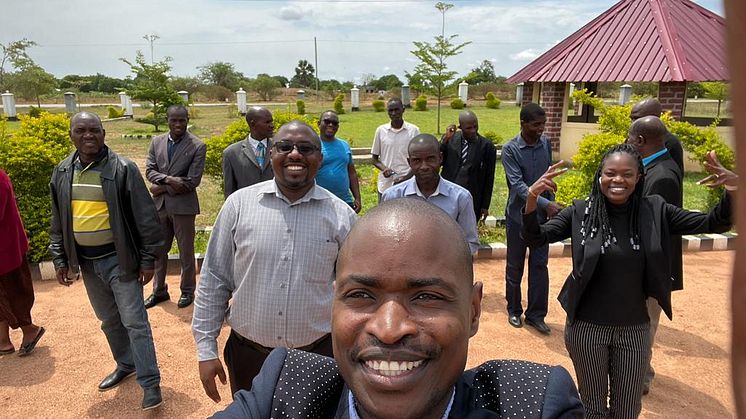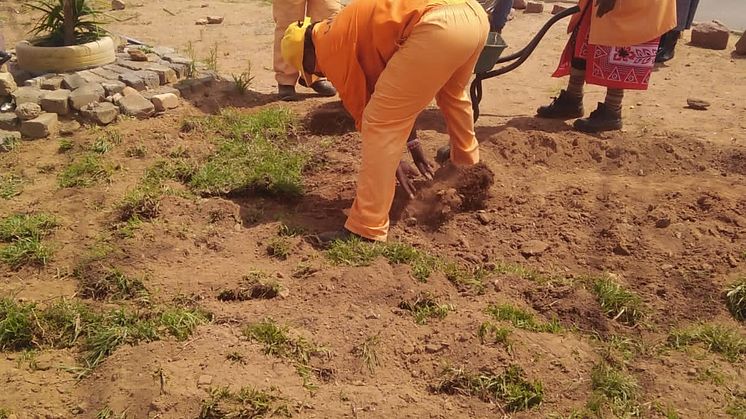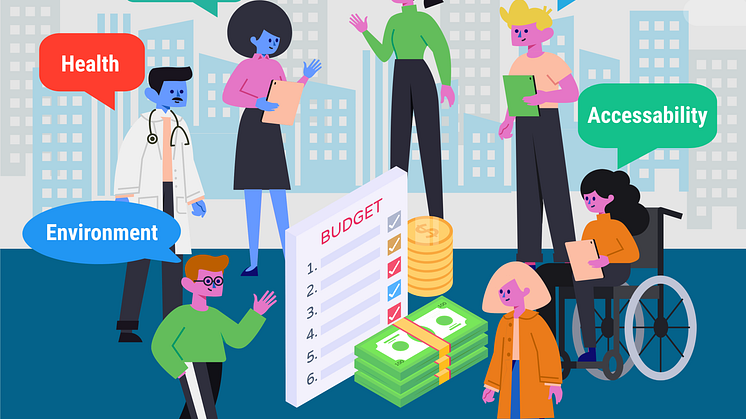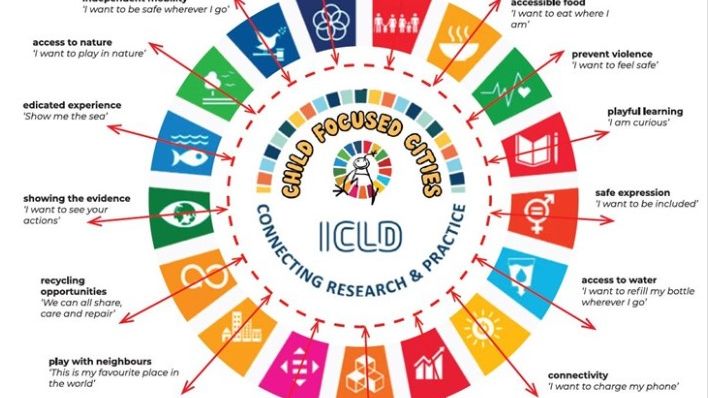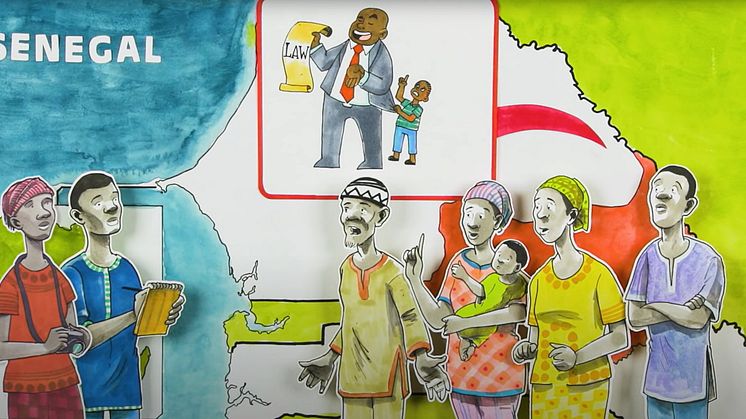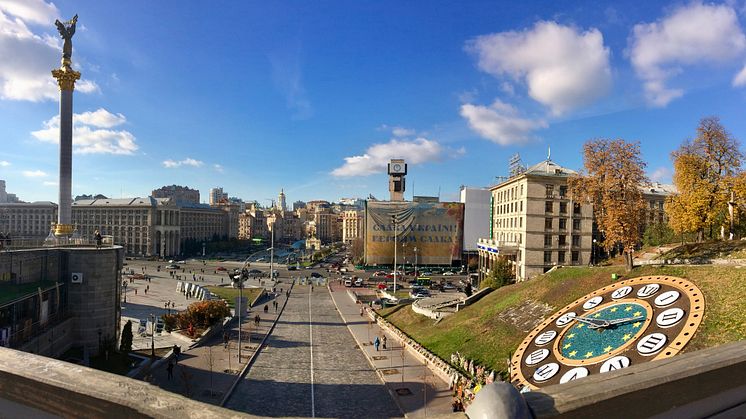
Blogginlägg -
Anti-corruption research shapes training of municipal managers in Ukraine
In 2019, ICLD granted a research project on political will for anti-corruption in Ukraine. This was before the full-scale invasion and the turn of history in Europe. Yet, as the research is published in 2023, the conclusions emerge as relevant as ever, telling a story of how democratic principles can be prioritised and upheld in a climate of severe adversity - and how collective dialogue efforts reinforce resilience. Today, Ukrainian municipalities are going through a 5-month programme on how political will for collective dialogue is sustained.
Here is the research project and how it relates to the real world right now, according to the principal investigator Marcia Grimes.

Which were the main findings of your project?
Communication is central in resolving the collective action dilemma at the core of anti-corruption work. Systemic problems, like corruption, can be tackled when stakeholders communicated to the following ends:
(1) define the collective benefits of change and hold each other accountable for acting towards their commitments to achieve those aims,
(2) identify and prioritize strains of problem (local corruption schemes) and then elaborate appropriate solutions, and
(3) continuously persuade one another to make needed effort and sustain commitments during the entire process of shaping change.
Successful reform initiatives did not result in any the cases from single events or the efforts of a single actor, but rather communicative efforts over an extended period of time involving a spectrum of key actors. These cases suggest recommendations on how dialogue can foster political will, and what such communicative efforts entail (see the research report. A policy brief on the topic is forthcoming!)
How did the target communities - citizens in the Ukraininan municipalities - benefit from the research?
Two of the project’s members, Oleksandra Keudel and Oksana Huss, participated in the National Agency for Corruption Prevention (NAPC)’s strategic risk assessment of corruption in education and humanitarian aid. Insights from the project informed NAPC’s approach, and the risk assessment engaged representatives of key stakeholder groups in order to identify the problems and draft the solutions jointly with the public authority. For instance, the corruption risk assessment in education built on consultations and focus groups with the parents’ NGOs, school principals, representatives of local education departments, and national-level politicians. Their feedback was incorporated and significantly shaped the definition of corruption risks and policy proposals to overcome them. The executive summary of the resulting report can be found here.
Additionally, the findings about the role of communication in solving complex problems from this project helped the team from Kyiv School of Economics to design educational activities for municipal project managers. The 5-month training program, funded by the National Endowment for Democracy, includes training in defining the collective benefits of a project for the community, building appreciation of the techniques for stakeholder engagement in project design and implementation, and facilitation skills. All of which had emerged as key components of the successful development of political will in cases studied.
What was the biggest challenge to connect research and practice?
Bringing about system change requires a minimal willingness among political elites to shift from a mindset of delegative authority in representative democracy, when citizens are considered clients, towards a collaborative governance approach, in which authorities and other stakeholders work as partners.
Reaching this kind of shift in a one-shot training is impossible. The lessons learned from the cases studied are, for this reason, more immediately applicable for communities with some prior development in this direction (e.g. have some participatory governance elements in their decision-making).
The second challenge is how key actors, government and non-government alike, can discuss corruption and anti-corruption in their own setting. The cases suggest that effective anti-corruption measures were as a rule not framed as anti-corruption measures at all, but rather as a means to other ends, such as improving the investment climate. Following on this insight, we developed a set of training practices in which local economic development is the primary focus.
And the third challenge is that even in committed communities, participants intuitively move too quickly to solutions without exploring the strains of a problem and causal chains beyond immediate symptoms. The solution is to engage an experienced facilitator to ensure training participants spend sufficient time on identifying the dimensions of problem. The Russian invasion of Ukraine interrupted the piloting of workshops in local public authorities.

How can we continue with this change?
The resilience of Ukraine in this asymmetric war demonstrates the importance of collective dialogue efforts far beyond anti-corruption reforms. Our findings on political will informed several questions in the survey of local public authorities in Ukraine; in particular, we inquired about the significance of communication platforms empirically for reacting to many crises triggered by the war. The survey results, conducted in September 2022, confirmed our assumptions: over 80% of responding communities indicated that established public information channels helped significantly in overcoming the challenges of wartime, while as many as half also stated that previous experiences holding public hearings and offline consultations also enabled local efforts to respond to wartime challenges. Almost all public authorities that had a platform for dialogue with business reported that the platform was helpful under current conditions. These findings inform the new policies of the Congress of Local and Regional Authorities of the Council of Europe and other international organizations supporting Ukraine in the Russian war.
From a research perspective, what surprised you the most?
In the research process, we were surprised about the striking difference in how open some communities were to talk and reflect on their anti-corruption endeavors while others were reluctant. In terms of findings, we were surprised to see how the revolving door mechanism positively affected the reforms. Short-term change of positions between the public and private sectors is often thought to go hand in hand with high corruption risks and conflict of interest. On the local level of governance in Ukraine, where members of city councils do not receive salaries and have full- or part time jobs, this is indeed an inherent source of conflict of interest.
Against this background, it was striking that on multiple occasions, our interlocutors in leading positions highlighted that wearing multiple hats (e.g. as a civil society activist and member of the city council or former public servant that moved to work in an NGO) helped them think of the reforms more pragmatically and constructively, since they had first-hand understanding of the constraints and aspirations of different stakeholder groups. The active fluctuation of personalities between the sectors was sparked by the revolutionary sentiment of Euromaidan and boosted by the decentralization reform when local self-government authorities obtained more political and fiscal competencies. This encouraged different people to actively engage in local politics with positive aspirations for the municipality.
Research team








